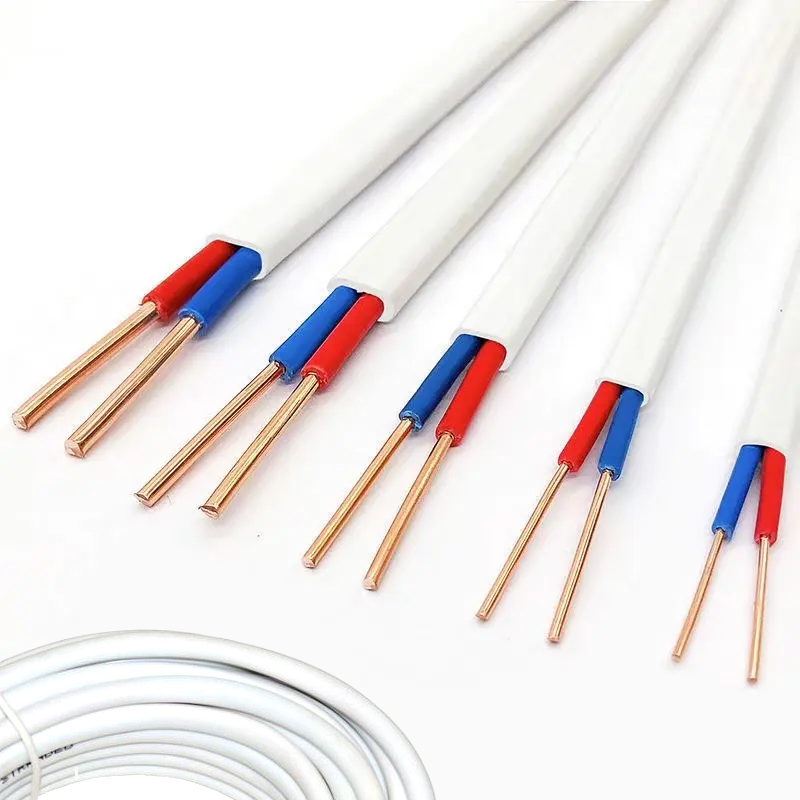
Top Quality XLPE PVC for Enhanced Performance and Durability in Electrical Applications
Understanding the Best XLPE PVC Characteristics and Applications
When it comes to modern electrical insulation materials, cross-linked polyethylene (XLPE) and polyvinyl chloride (PVC) are two of the most widely used polymers. While both materials have their unique properties and advantages, understanding the best forms of XLPE and PVC is critical for various applications, especially in the electrical and construction industries. This article delves into the characteristics, benefits, and applications of the best XLPE PVC.
What is XLPE?
Cross-linked polyethylene (XLPE) is a high-performance thermoplastic that results from the cross-linking of polyethylene molecules. This process enhances the material's temperature resistance, chemical stability, and overall durability compared to standard polyethylene. XLPE is particularly beneficial in applications requiring high electrical insulation and thermal resistance, making it ideal for cable insulation, piping systems, and various construction materials.
The Advantages of XLPE
1. Thermal Stability XLPE can withstand higher temperatures than many other plastics, with operating temperatures up to 90°C (194°F) continuously and up to 120°C (248°F) in short-term applications. This thermal resilience is essential in electrical applications where heat generated by current flow must be managed.
2. Chemical Resistance XLPE exhibits exceptional resistance to a wide range of chemicals, including acids, bases, and solvents. This characteristic makes XLPE highly suitable for industrial applications where exposure to harsh substances is common.
3. Electrical Insulation One of the standout features of XLPE is its excellent dielectric properties, which make it a preferred choice for electrical cables. XLPE cables offer lower power losses, reduced dielectric breakdown, and improved insulation reliability.
4. Environmental Resistance Besides its chemical inertness, XLPE is also resistant to moisture and UV radiation, thereby providing an extended service life even in outdoor or humid environments.
What is PVC?
Polyvinyl chloride (PVC) is one of the most widely used synthetic plastic polymers globally. PVC can be found in two forms rigid and flexible. Rigid PVC is commonly used in pipes and fittings, while flexible PVC is often used in electrical cables, flooring, and many consumer products.
The Advantages of PVC
1. Cost-Effectiveness PVC is relatively inexpensive compared to many other materials, making it a popular choice for various applications, especially in construction and electrical sectors.
best xlpe pvc

2. Durability PVC is resistant to corrosion, chemical damage, and abrasion, providing long-lasting performance in a range of environments.
3. Versatility With its ability to be formulated into different grades, PVC can be used across many industries, from plumbing and construction to electrical insulation.
4. Fire Resistance PVC has inherent fire-retardant properties, reducing the risk of ignition and flame spread, which is crucial in building materials.
Combining XLPE and PVC A Winning Formula
The combination of XLPE and PVC leads to a material that leverages the strengths of both polymers. The resulting XLPE PVC compounds offer exceptional thermal and electrical properties alongside affordability and versatility. Such blends are particularly advantageous for electrical cable manufacturers who strive for higher performance while keeping costs manageable.
Applications of XLPE PVC
1. Electrical Cables The primary application of XLPE PVC is in the insulation of high-voltage electrical cables, where safety and reliability are paramount.
2. Construction Materials XLPE PVC is also used in various building materials, such as pipes and fittings, offering both durability and ease of installation.
3. Automotive Industry The automotive sector utilizes XLPE PVC for wire insulation due to its excellent thermal and electrical properties.
4. Consumer Goods From flexible tubing to electrical connectors, the applications of XLPE PVC can be seen in various consumer products.
Conclusion
The best XLPE PVC combines the best of both worlds, offering high thermal stability, chemical resistance, and excellent electrical insulation while remaining economical. As industries continue to seek reliable and efficient materials, understanding and utilizing the advantages of XLPE PVC will play a crucial role in advancements in electrical, construction, and consumer goods sectors. Whether it’s for high-performance electrical insulation or durable construction materials, XLPE PVC stands out as a material of choice in the modern world.
-
The Quantum Leap of XLPE Cable in Power DistributionNewsMay.29,2025
-
Mastering the Essentials of Building WireNewsMay.29,2025
-
Innovative Horizons of Rubber Trailing CablesNewsMay.29,2025
-
Exploring the Versatile World of Rubber CablesNewsMay.29,2025
-
Decoding the Mysteries of Building CablesNewsMay.29,2025
-
Advancements Redefining Control Cable TechnologyNewsMay.29,2025
-
Why It's Time to Replace Old Rubber CablesNewsMay.28,2025














